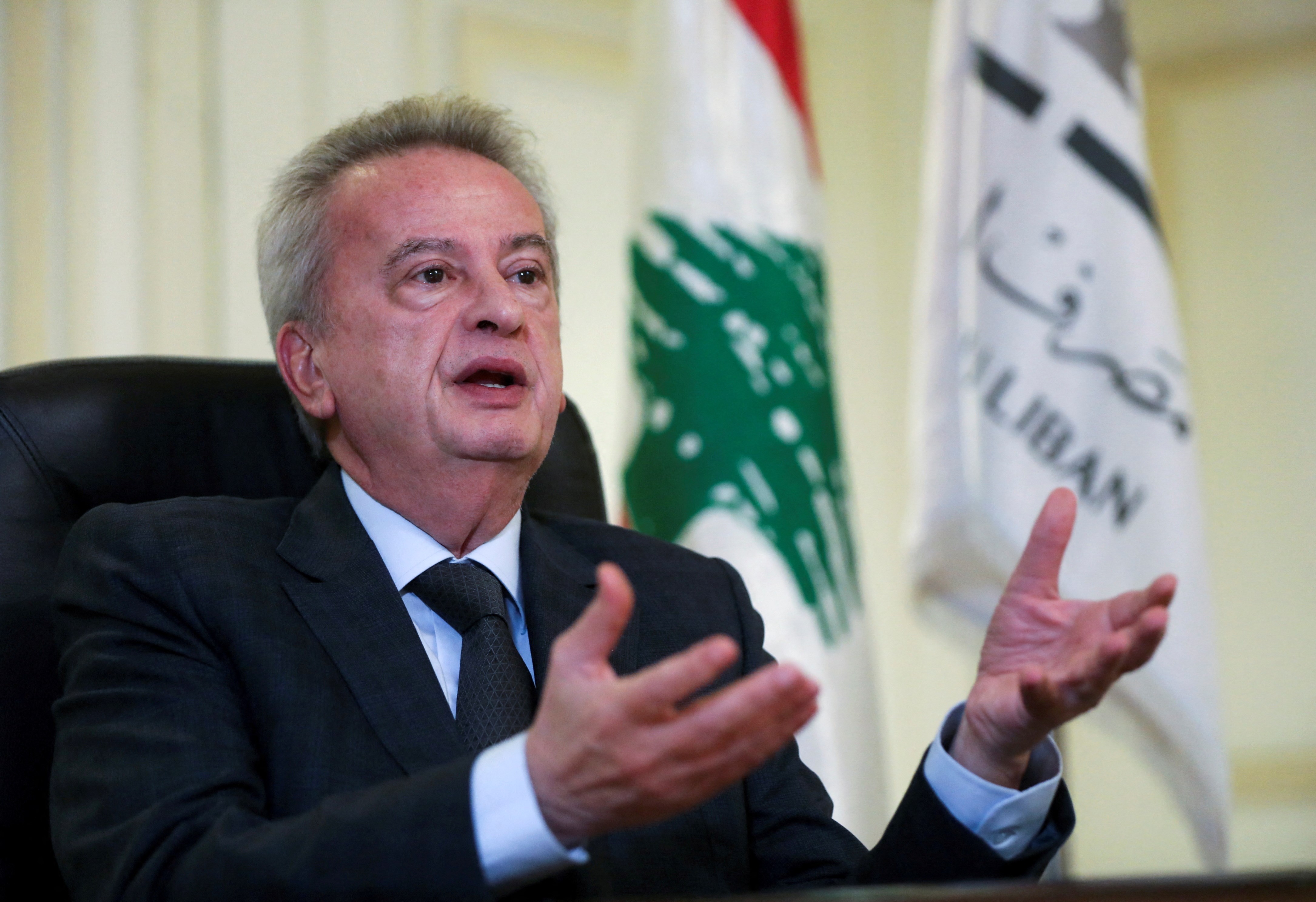EU freezes 120 million euros in Lebanese laundering probe
The EU's Eurojust agency has seized 120 million euros in an investigation into money laundering committed by Lebanese officials, a country that has been suffering a stifling economic crisis for years.
-

Lebanon's Central Bank Governor Riad Salameh speaks during an interview for Reuters Next conference, in Beirut, Lebanon
France, Germany, and Luxembourg have seized properties and frozen assets worth some 120 million euros in an operation linked to money laundering in Lebanon, Eurojust, the EU's justice agency said Monday.
The judicial body said five properties in Germany and France had been seized, and several bank accounts were frozen.
The Hague-based agency announced that the operation took place on Friday, adding that it was conducted against five suspects on suspicion of embezzling funds in Lebanon, estimating that the funds they took amounted to more than $330 million between 2002 and 2021.
Lebanon, whose economic crisis the World Bank said might rank among the top 10 worst economic crises in the world since the mid-nineteenth century, has been undergoing several hikes in food and fuel prices, and its citizens have been heavily bearing the brunt of the crisis.
Most Lebanese citizens currently make about $40 per month, and according to UNICEF, more than 70% of Lebanese families were not able to afford a daily ration of food in 2021.
The operation included the seizure of three properties in Germany, valued at 28 million euros, and other assets that amounted to seven million euros.
Paris seized two properties in the capital, valued at 16 million euros, and a bank account with 2.2 million euros.
The agency also froze around 11 million euros in another bank account, according to its announcement that did not see them providing any details related to the suspects. "They are assumed to be innocent until proven guilty," they argued.
French anti-graft prosecutors had launched an investigation into the personal wealth of Riad Salameh, the governor of the Central Bank of Lebanon, as he was linked to criminal associations and money laundering.
Prosecutors said they were probing Salameh over allegations that he was associated with criminal organizations and money laundering following a similar move taken by Switzerland.
Salameh is closing in on three decades in his position as BDL governor, and his reign in Lebanon has been criticized by many, with former caretaker Prime Minister Hassan Diab holding him responsible for the collapse of the Lebanese currency.

 2 Min Read
2 Min Read








